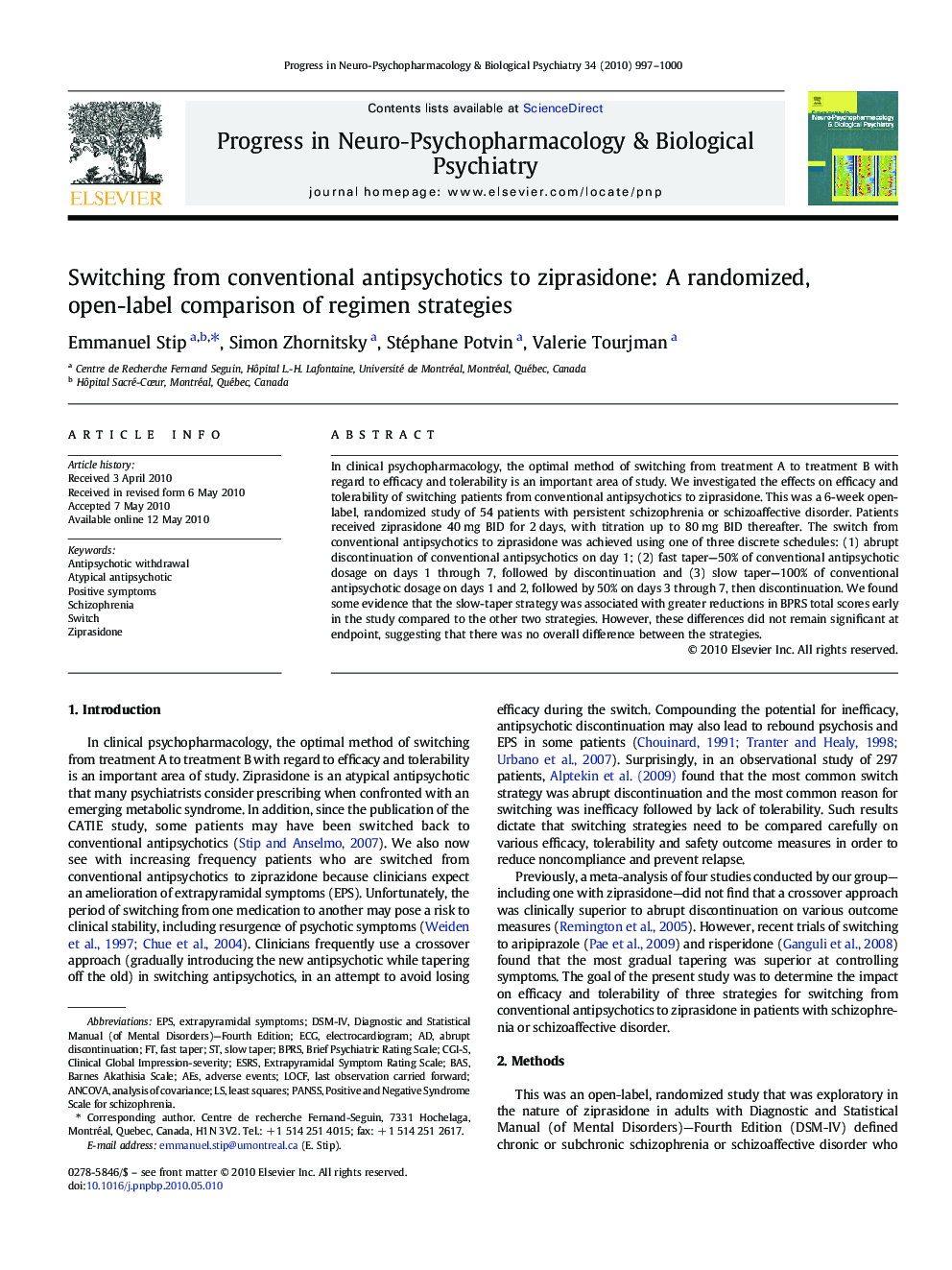| Article ID | Journal | Published Year | Pages | File Type |
|---|---|---|---|---|
| 2565381 | Progress in Neuro-Psychopharmacology and Biological Psychiatry | 2010 | 4 Pages |
In clinical psychopharmacology, the optimal method of switching from treatment A to treatment B with regard to efficacy and tolerability is an important area of study. We investigated the effects on efficacy and tolerability of switching patients from conventional antipsychotics to ziprasidone. This was a 6-week open-label, randomized study of 54 patients with persistent schizophrenia or schizoaffective disorder. Patients received ziprasidone 40 mg BID for 2 days, with titration up to 80 mg BID thereafter. The switch from conventional antipsychotics to ziprasidone was achieved using one of three discrete schedules: (1) abrupt discontinuation of conventional antipsychotics on day 1; (2) fast taper—50% of conventional antipsychotic dosage on days 1 through 7, followed by discontinuation and (3) slow taper—100% of conventional antipsychotic dosage on days 1 and 2, followed by 50% on days 3 through 7, then discontinuation. We found some evidence that the slow-taper strategy was associated with greater reductions in BPRS total scores early in the study compared to the other two strategies. However, these differences did not remain significant at endpoint, suggesting that there was no overall difference between the strategies.
